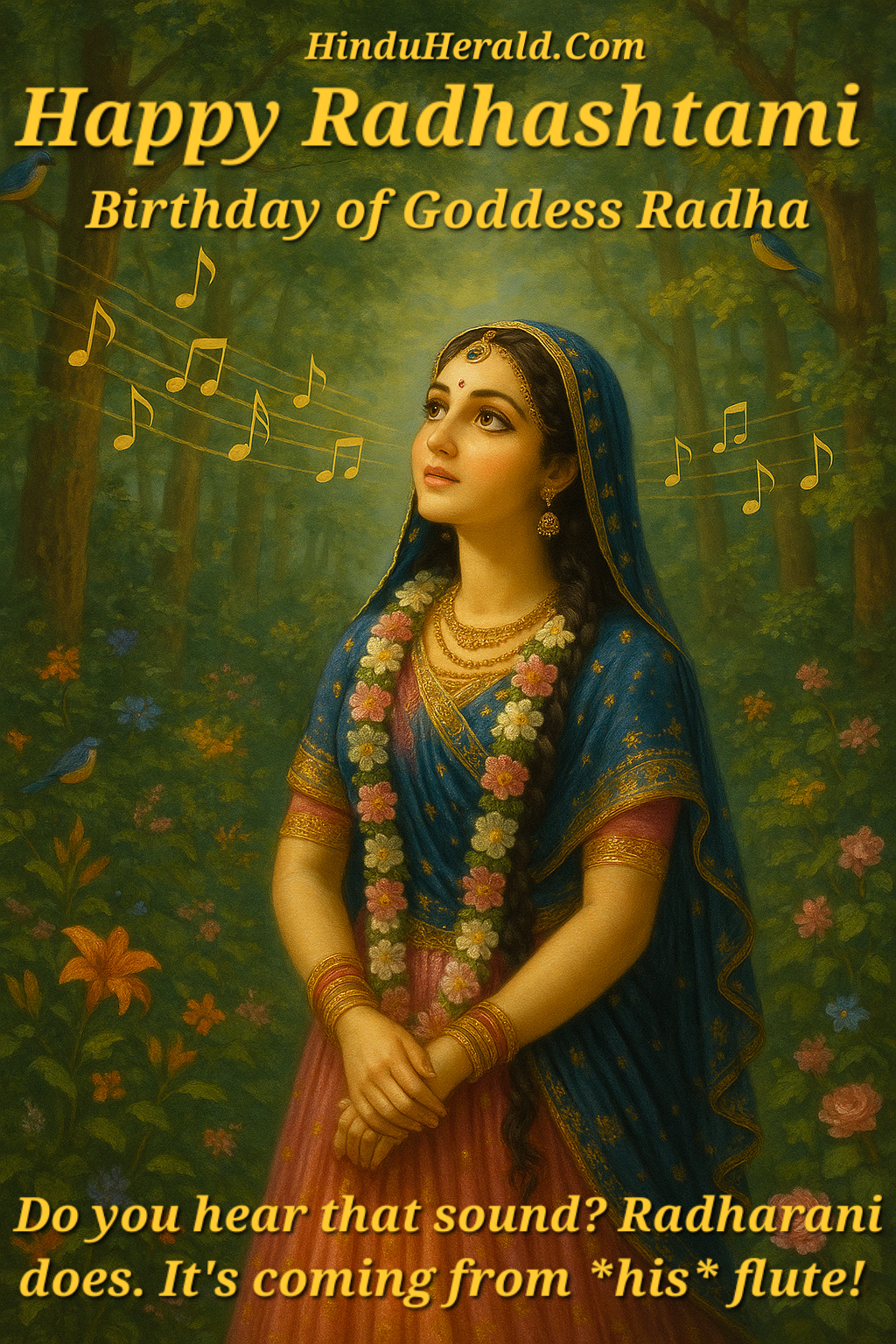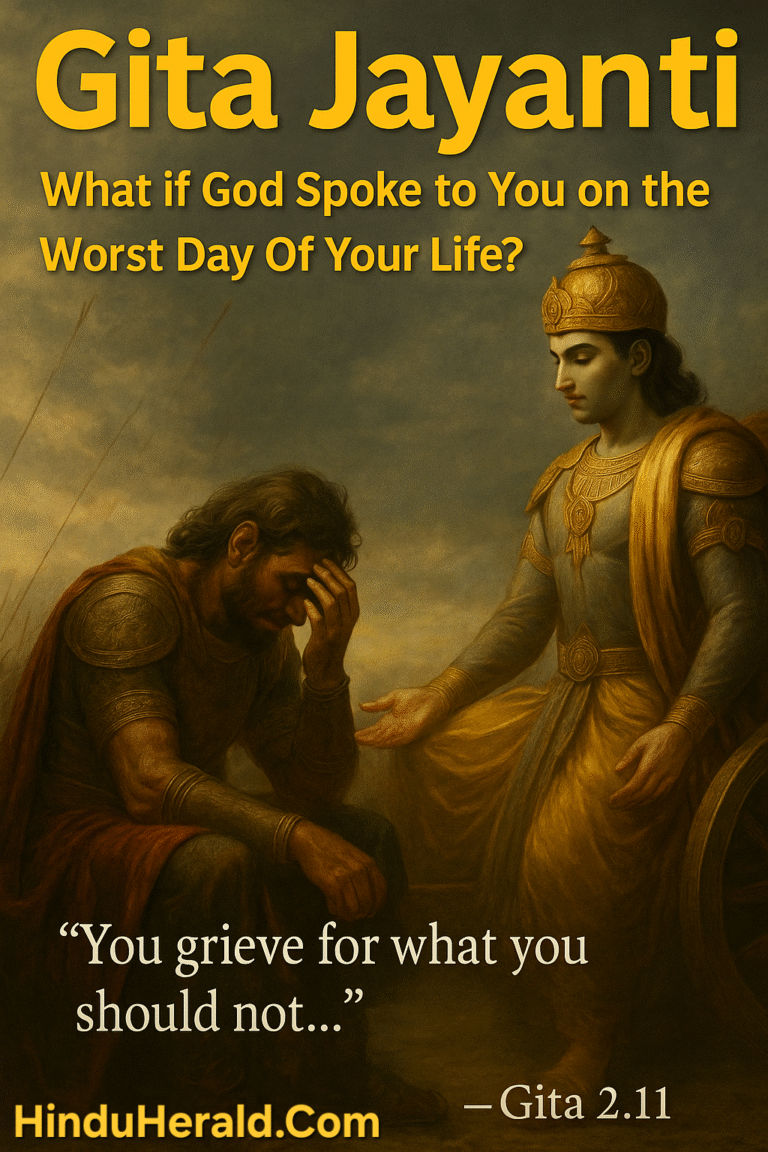
🌸 Radhashtami: The Day Rādhā’s Name Becomes the Path to Krishna
She is the whisper behind His flute. The softness in His eyes. The power behind His name.
On this sacred day of Radhashtami, we honor Śrī Rādhā, not merely as Krishna’s beloved, but as His eternal Śakti—the personification of divine love (prema) and selfless devotion (bhakti). Where Krishna charms the world, Rādhā charms Krishna. She is not part of His story—she is the reason it exists.
📜 Rādhā Is in the Scriptures—Even If Some Deny It
In certain sects, Rādhā’s divine status is quietly questioned or outright denied. Some say she is a poetic symbol, not a śāstric truth.
But the Purāṇas say otherwise—loudly and lovingly.
Rādhā is not confined to folk songs or mystical poetry. Her presence runs deep in the sacred texts of multiple Hindu traditions: Vaiṣṇava, Śākta, and even Śaiva.
- Brahma Vaivarta Purāṇa – Glorifies Rādhā as the supreme goddess, Krishna’s eternal consort, and source of Lakṣmī.
- Padma Purāṇa – Includes Rādhā in ritual descriptions and as an expansion of Lakṣmī.
- Devi Bhāgavata Purāṇa – Reveals Rādhā as a radiant form of the Mahādevī.
- Varāha Purāṇa – Names Rādhā as the beloved of Krishna.
- Nārada Purāṇa – Offers devotional praise to Rādhā and her divine relationship with Krishna.
- Skanda Purāṇa – Contains regional accounts of Rādhā-Kṛṣṇa līlā.
- Shiva Purāṇa (Rudra Saṁhitā, Yuddha-khaṇḍa) – Mentions Rādhā cursing Śrīdāma, who is reborn as the demon Śaṅkhacūḍa, and later interceding with Lord Shiva for his liberation.
Across the spectrum of Hindu thought, the scriptures affirm what the heart already knows:
Where there is Krishna, there is Rādhā.
And where there is Radhashtami, there is the chance to remember her as she truly is—scripturally real and eternally divine.
🎶 Many Hear the Flute… But Only Rādhā Understands It
The gopīs of Vṛndāvana also hear Krishna’s flute. So do the cows, the birds, and even the trees.
But it is Rādhā who understands its meaning.
She knows which note is playful, which is a calling, and which is a silent apology. She knows when He is teasing, and when He is longing. The sound of His flute travels through the forest like gold dust in the wind—and Rādhā is the one it seeks.
We’ve included a beautiful devotional bhajan on this Radhashtami page—titled Radhe Radhe Ho by Shankaridasi. As you listen, imagine the moment Krishna plays. Imagine Rādhā standing still among the trees, her eyes closing, her heart recognizing the call.
That’s not a song. That’s eternity in sound.
💠 On Radhashtami, Don’t Just Worship—Remember
Rādhā doesn’t ask for rituals. She doesn’t demand offerings.
She only asks for recognition.
To recognize Rādhā is to recognize the soul of devotion itself. She is not a helper to God—she is the Divine Feminine in full bloom, complete and radiant.
So on Radhashtami, don’t ask for wealth.
Don’t ask for favors.
Don’t even ask for moksha.
Just ask for her glance.
Because if Rādhā looks at you, Krishna will never look away.
Happy Radhashtami to all who hear the call.
© Hindu Herald. All rights reserved.



